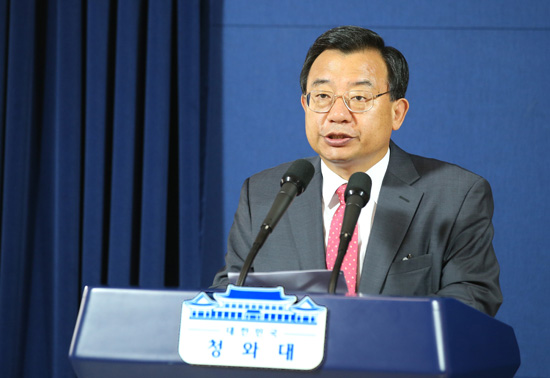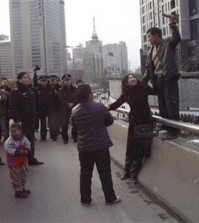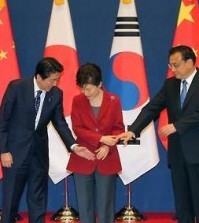- California Assembly OKs highest minimum wage in nation
- S. Korea unveils first graphic cigarette warnings
- US joins with South Korea, Japan in bid to deter North Korea
- LPGA golfer Chun In-gee finally back in action
- S. Korea won’t be top seed in final World Cup qualification round
- US men’s soccer misses 2nd straight Olympics
- US back on track in qualifying with 4-0 win over Guatemala
- High-intensity workout injuries spawn cottage industry
- CDC expands range of Zika mosquitoes into parts of Northeast
- Who knew? ‘The Walking Dead’ is helping families connect
Seoul to declare new air defense zone
US, Japan, China to be given briefing
By Chung Min-uck
Seoul plans to declare a bigger Air Defense Identification Zone (ADIZ) that encompasses the airspace of Ieodo reef located southwest of Jeju Island.
Initially, government and ruling Saenuri Party officials were to coordinate this plan on Tuesday and declare Korea’s new ADIZ at the end of the week.
But according to a senior party official, Monday, the schedule was abruptly put off, saying that they needed “more time to review.”
No specific date has been set up yet, but the official said the meeting is likely to be held next week.
Insiders say the sudden postponement comes as U.S. Vice President Joe Biden is due for a week-long visit to the three East Asian nations this week.
His back-to-back talks with leaders from Japan, China and Korea are expected to relieve some territorial tensions in the region.
Meanwhile, insiders say Korea’s new air defense zone would include Ieodo and its vicinity to effectively counter China’s latest expansion initiative.
China last week declared its new ADIZ over the East China Sea and demanded all foreign aircraft passing through the zone to identify themselves to Chinese authorities.
The area overlaps the airspace of South Korea’s Ieodo and Japan’s Senkaku Islands, referred to as Diaoyu Dao by China, and has sharply raised tensions in Northeast Asia.
Seoul, during a high-ranking defense meeting last week, urged China to reconsider its newly-declared CADIZ, but China refused.
“If Ieodo is not included in the KADIZ, it will send a wrong signal of giving up our territorial right,” said Hong Hyun-ik, a senior researcher at the private Sejong Institute. “We are currently experiencing the biggest deficit. We cannot but announce a new ADIZ that overlaps with others.”
Seoul’s declaration is likely to add fuel to the ongoing territorial war in East Asia because it will also overlap with that of Japan which already includes Ieodo.
Set up in 1951 by the U.S., Korea’s AIDZ does not cover the country’s airspace over some remote spots.
Meanwhile, Biden is to arrive in Tokyo on Monday and head to Beijing on Wednesday, followed by a three-day stay in Seoul.
“Clearly, the visit to China creates an opportunity for the vice president to discuss directly with policymakers in Beijing this issue to convey our concerns directly and to seek clarity regarding Chinese intentions in making this move at this time,” a senior Obama administration official said.
The U.S. recently backed off from direct confrontation with China by warning its civilian aircrafts to inform China when entering China’s newly-established ADIZ.
The move drew a severe backlash, especially from Japan, which has been trying to jointly suppress China’s growing influence in the region.

















